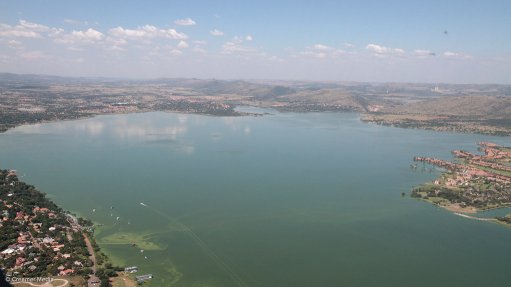
Photo by: Duane Daws
The first phase of the Mokolo Crocodile River Water Augmentation Project (MCWAP) would only be ready for operation on October 8, Water and Sanitation Minister Nomvula Mokonyane revealed in a written response to a Parliamentary question by opposition party Democratic Alliance’s Nosimo Balindlela.
The Minister noted that the delays in the project, which had initially been expected to start operating in September 2013, were caused by severe flooding in the project area in 2014 and slow pipe-laying progress, owing to the contractors and labour issues.
Construction on the project, which was estimated to cost about R13.4-billion, started in September 2011.
The two-phase MCWAP included the construction of several large pumpstations, more than 170 km of pipeline and an abstraction works, all of which required the creation of significant supplementary infrastructure. It would supply water to State-owned electricity provider Eskom’s Medupi power station.
Phase 1 entailed the construction of a new pumpstation at the existing Mokolo dam and a 43 km pipeline of up to 1 100 mm diameter to deliver about 30-million cubic metres of bulk water a year from the Mokolo dam.
The implementing agent, the Trans-Caledon Tunnel Authority (TCTA), enlisted the consulting services of Mokolo Crocodile Consultants, a joint venture comprising Aurecon, Goba, PD Naidoo & Associates, Vela VKE and Worley Parsons.
Asked whether the TCTA had managed to raise funds to build the pipeline, Mokonyane noted that R2-billion was approved until March 2017, adding that the social component (25%) would be paid for by the Department of Water and Sanitation (DWS).
The remainder of commercial funding would be provided by National Treasury, which had issued an implicit guarantee. Debt was payable over a period of 20 years after commissioning.
DAM IMPACT
Concerns were also raised about the potential impact on the Hartbeespoort and Roodekopjes dams, as well as on farmers who had rights to extract water from the Crocodile river and the two dams, of the transfer of water out of the Crocodile river.
Mokonyane highlighted that the Hartbeespoort dam had surplus water, which meant that the transfer would not affect users from the dam; however, the operating level of the dam would fluctuate as per seasonal rains.
“The Roodekopjes dam, in this instance, will convey water released from the Hartbeespoort dam to Lephalale, while the current storage of the dam will be left for the current users,” she said.
She added that the water needs and entitlements of users, including farmers, in the Crocodile River West catchment had been fully accounted for in assessing the availability of water for transfer towards Lephalale. This was documented in the Crocodile River West Reconciliation Strategy.